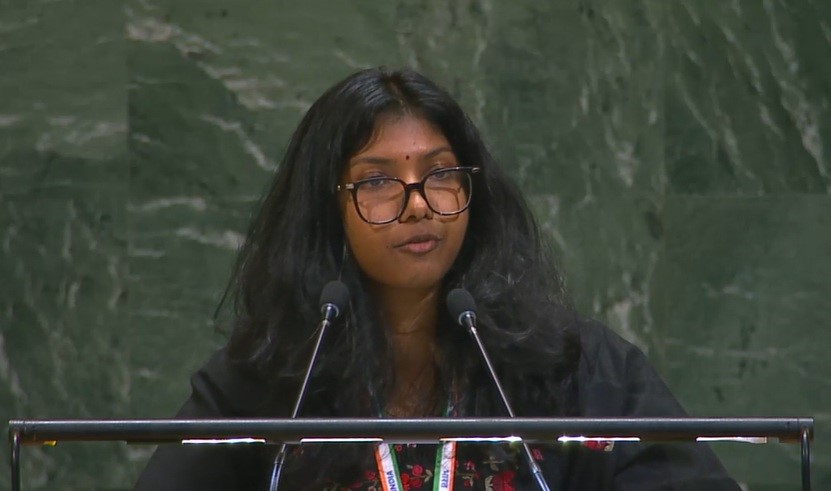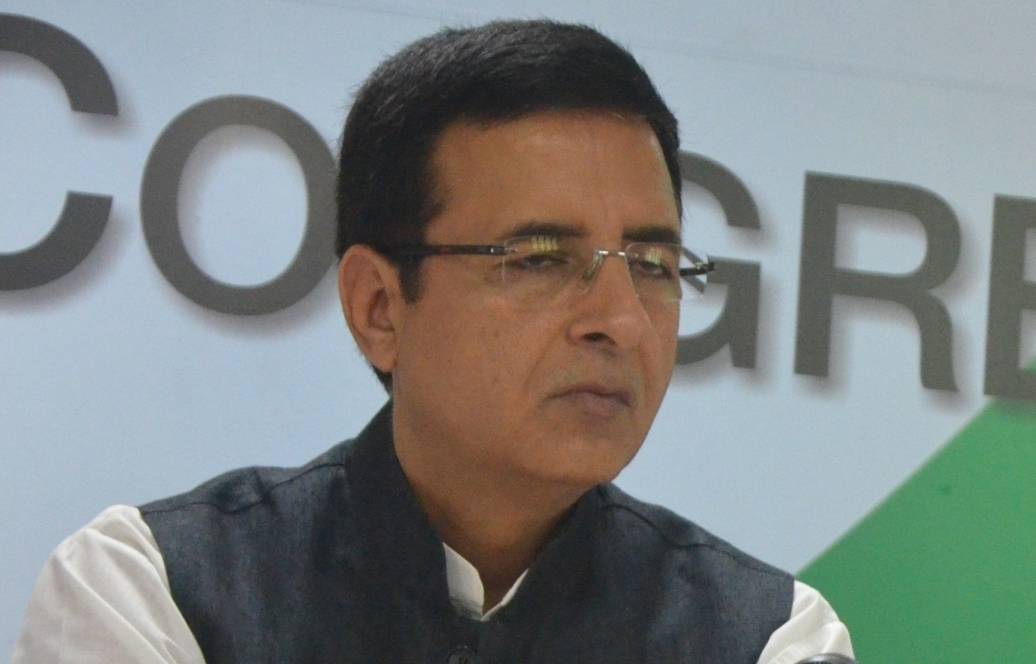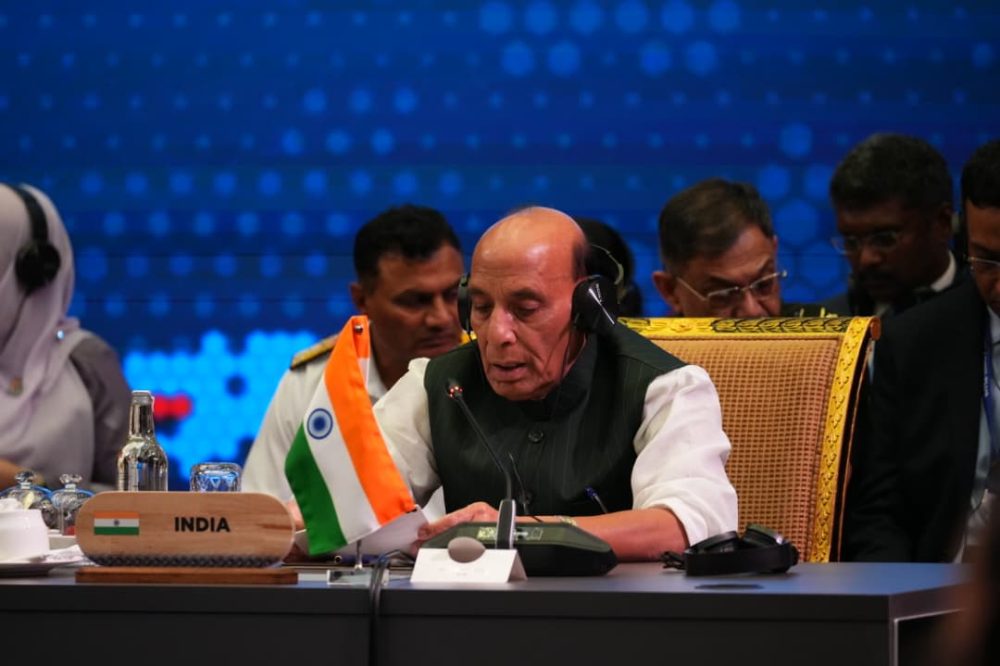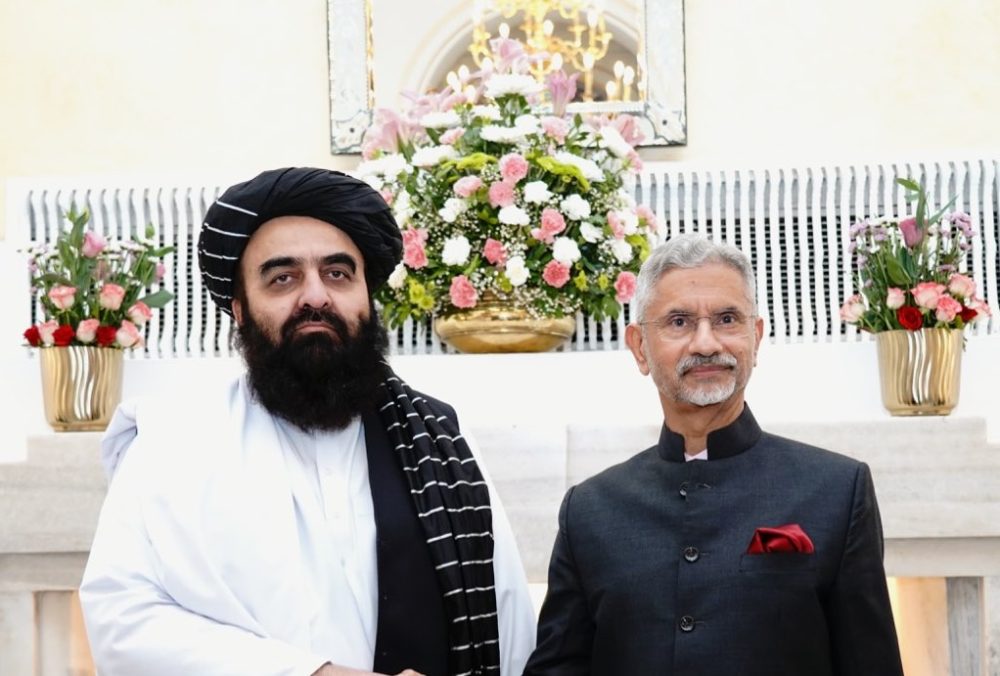The new engagement with China under JWG is envisaged to increase labour productivity in Pakistan, enhance industrial competitiveness, increase exports, and sustain diversification in the exports basket…reports Asian Lite News
Pakistan and China on Friday inked the Framework Agreement on Industrial Cooperation under Beijing’s multi-billion CPEC project in Pakistan following Prime Minister Imran Khan’s arrival here on the previous day.
The Prime Minister is in China to attend the opening ceremony of the Winter Olympics and meet the Chinese leadership for the China Pakistan Economic Corridor, according to Pakistani newspaper Dawn.
The visit largely aims to seek financial relief from the communist regime on Belt and Road debts but rising security concerns could kill many key projects, according to a media report.
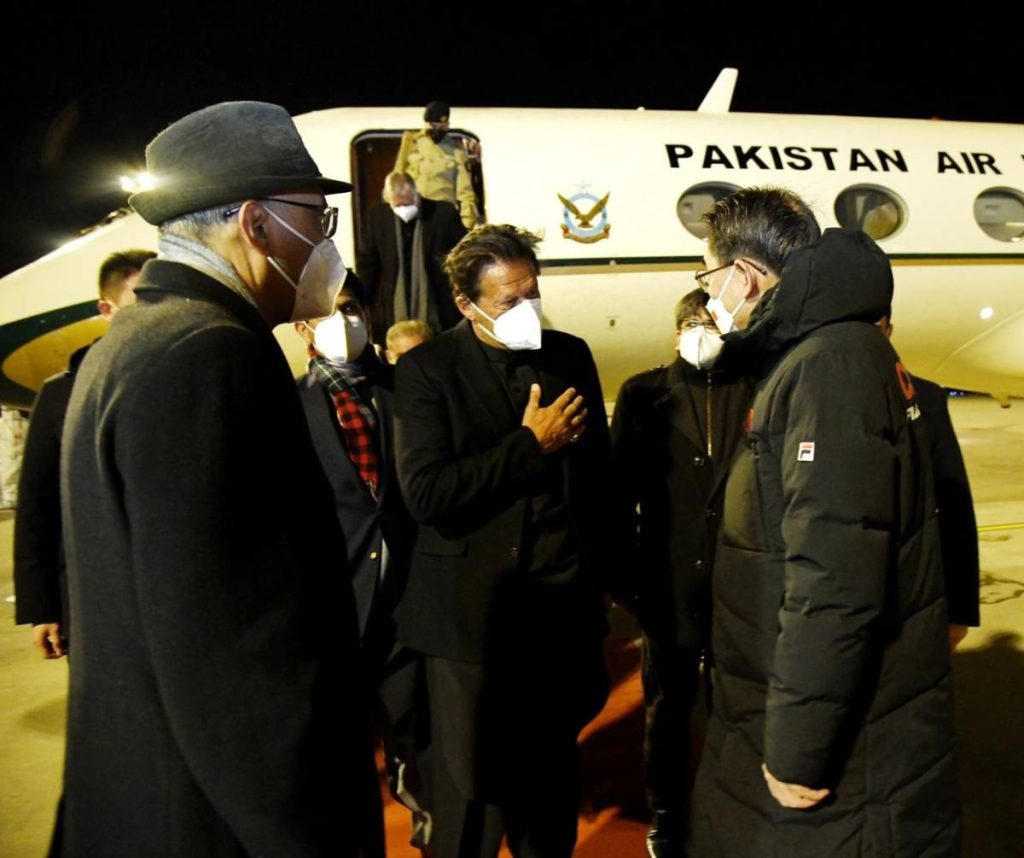
The accord was signed by Pakistan’s state Minister and Chairman Board of Investment Mohammad Azfar Ahsan and Chairman of National Development & Reform Commission (NRDC) He Lifeng.
The objective of the Joint Working Group (JWG) on Industrial Cooperation is to attract foreign direct investment (FDI), promote industrialisation and development of economic zones, and initiate, plan, execute, and monitor projects, both in public as well as the private sector.
The engagement with China under JWG is envisaged to increase labour productivity in Pakistan, enhance industrial competitiveness, increase exports, and sustain diversification in the exports basket, Dawn reported.
The CPEC authority last week during a meeting with Khan cautioned that Chinese Independent Power Producers (IPPs) may soon suspend their operations under Power Purchase Agreements due to the rising prices of coal on international markets.
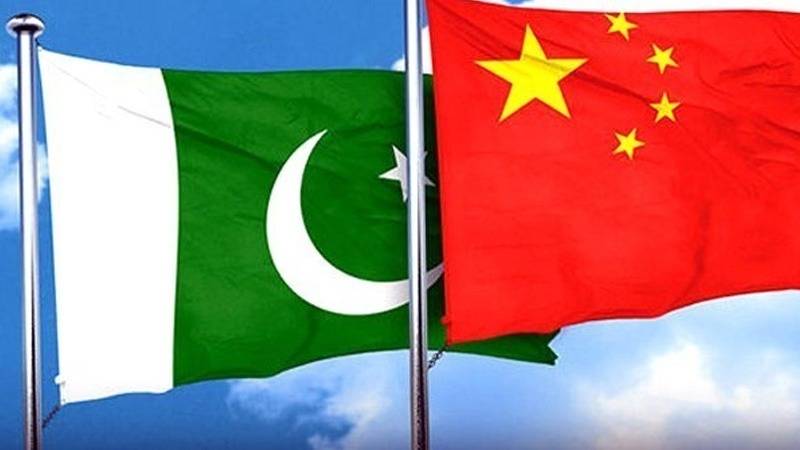
For China, CPEC is a part of major strategic value in South Asia. But the CPEC’s power plant component, which has seen the construction of several new electricity generating facilities in recent years, has bogged down the wider corridor amid perceptions in Pakistan that the financial terms of building and take-or-pay power contracts that require Islamabad to pay for power even if it is not delivered and transmitted are tilted overwhelmingly to China’s advantage, according to Asia Times.
The power purchase agreements are heavily loaded in China’s favour and are imposing unsustainable costs on the national economy and finances.
Meanwhile, stressing the need for structural reforms, Asian Development Bank (ADB) has said Pakistan can improve its economic connectivity if the USD 60 billion CPEC is implemented successfully.
“The CPEC is an initiative to build economic connectivity and regional integration between the PRC and Pakistan. However, the CPEC alone will not bring optimal results. Structural reforms for private sector development are needed as well,” the ADB said in a report.
“Also, tax reforms are essential to broaden the tax base and enhance the perceived fairness of the tax system. Infrastructure built under the CPEC should be fully utilised to expand trade and regional cooperation. Furthermore, the government should expedite the development of the nine SEZs planned along the CPEC routes,” the report added.
The ADB report titled, “Economic Corridor Development (EDC) in Pakistan” highlighted that despite signing Free Trade Agreements (FTAs) and Preferential Trade Agreements (PTAs), Pakistan could not boost its exports.
ADB analysis indicates that Pakistan is facing an acute infrastructure financing gap of about 5 per cent of GDP. (ANI)





